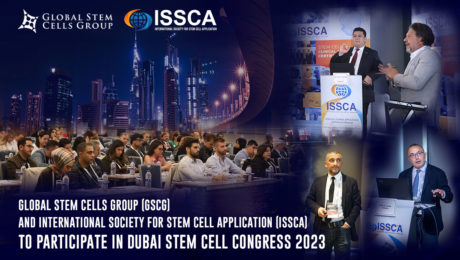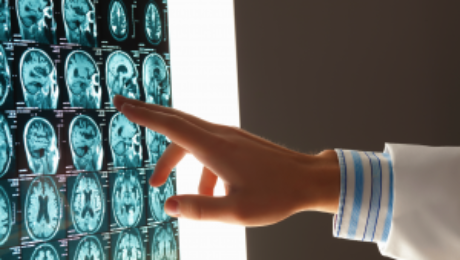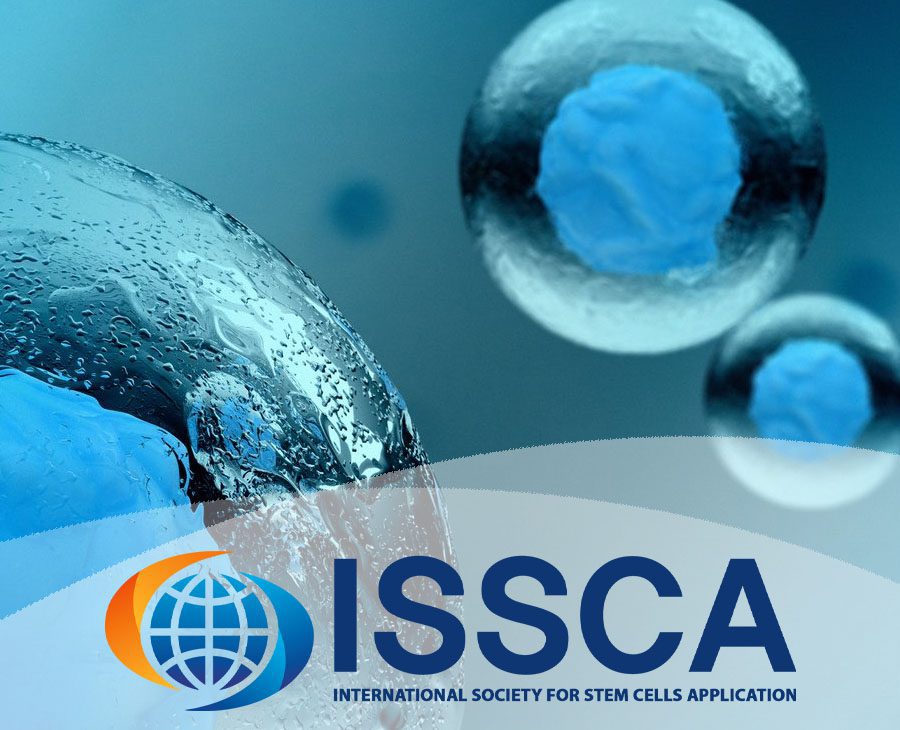Global Stem Cells Group (GSCG) and International Society for Stem Cell Application (ISSCA) to Participate in Dubai Stem Cell Congress 2023
MIAMI, Florida, February 15, 2023 – Global Stem Cells Group (GSCG) and its educational division, the International Society for Stem Cell Application (ISSCA), are proud to announce their participation as sponsors and co-organizers of the Dubai Stem Cell Congress 2023. The congress, endorsed by the Hortman Stem Cell Laboratory, will take place on the 27th and 28th of February 2023 at the prestigious Waldorf Astoria on The Palm in Dubai.
The congress will bring together international experts in regenerative medicine and stem cell research from around the world to share their knowledge, experiences, and insights with the academic community and the general public. The event will also provide a platform for patients to share their success stories of stem cell therapy and how it has helped them overcome various life-threatening diseases.
“We are honored to welcome you to the first edition of the Dubai Stem Cell Congress 2023, which will host international experts in the field of Regenerative Medicine & Stem Cell Research from around the world,” said Dr. Fatma Alhashimi, Chairman of Dubai Stem Cell Congress. “We will be showcasing cutting-edge data, stem cell technologies, and advanced applications.”
GSCG will showcase its range of cellular products and equipment, including exosomes for topical and intravenous use, Mesenchymal Stem Cells (MSC), Bone Marrow Kit, PRP Kit, Fat Kit for obtaining Stromal Vascular Fraction (SVF), workstation, and laboratory equipment. ISSCA, on the other hand, will be represented with its training, congresses, conferences, and the fellowship in Cellular Therapies.
“Our mission is to make cellular therapies a reality for both doctors and patients, and we are happy to continue that mission by sharing our knowledge and showcasing our Cellgenic branded Cellular products and equipment at the congress,” said Benito Novas, Managing Director of Global Stem Cells Group and Head of Public Relations for ISSCA.
With over 25 world-class international speakers, including ISSCA-certified speakers, the congress will feature a variety of panel discussions, lectures, and presentations on the latest innovative technologies in stem cell and regenerative medicine.
ISSCA-certified speakers and experts who will be presenting lectures at the congress include the following:
- Erdinç Civelek, a brain surgeon at Gaziosmanpaşa Taksim Hospital for Research and Education in Turkey.
- Dr. Serdar Kabataş, a brain surgeon at Gaziosmanpaşa Taksim Research and Education Hospital in Turkey.
- Abdulmajeed Hamadi, a consultant hematologist and pioneer in transplantation and stem cell therapy with an FRCP designation in Iraq.
- Salih Yildirim, the Director of Overseas Operations of ISSCA and a member of the Board of Directors of the Global Stem Cell Group and Director of International Operations.
- Benito Novas, the Managing Director of Global Stem Cells Group and Head of Public Relations for the International Society for the Application of Stem Cells in the USA.
Among the esteemed speakers at the event are:
Prof. Anil Dhawan, Dr. Frances Verter, Dr. Masayo Takahashi, Dr. Essam Abdelalim, Prof. Shuibing Chen, Prof. John E. Wagner, Mrs. Kim Petrella, Dr. Edward Guindi, Dr. Mazaiah Yaacob, Dr. Mohammed Moulay, Mr. Oliver Papavlassopoulos, Dr. Sean Ng, Dr. Chiara Cugno, Dr. Siti Aminah, Mr. Thomas Moss, Prof. Dr. Tim Schulz, Dr. Luis Saraiva, Mrs. Renata Mihályová, Dr. Srinivasan Periathiruvadi and Dr. Ahmed Foul.
For the first time in the UAE, patients will have the opportunity to share their success stories of stem cell therapy, including the story of Mahra, a UAE national and survivor of Thalassemia, and the world’s first cord blood patient, Matthew Farrow.
Stem cell therapy is the present and future of medicine and holds the “Hope That Brings Life” to many patients in need. The Dubai Stem Cell Congress 2023 is a landmark event that will bring together leading experts, patients, and members of the academic community to share their experiences and knowledge about stem cell therapy and its advancements.
To learn more about the Dubai Stem Cell Congress 2023 and to make a reservation, visit the https://dubaistemcellcongress.com/ website, email info@stemcellsgroup.com, or call +1 305 560 5337.
About Hortman Stem Cell Laboratory
Mr. Darius Curta Managing Director of Hortman Healthcare Investment – Hortman Stem Cell Laboratory is the first state-of-the-art laboratory within the field of Stem Cells and Regenerative Medicine, focused on providing top-notch cord blood banking solutions. Additionally, our institution will be facilitating the first ever clinical trials in stem cell research in UAE. Hortman Stem Cell Laboratory, located at Golden Mile, Palm Jumeirah, consists of GMP Laboratories & ISO Clean Rooms for stem cell isolation, culture & expansion. Such a facility enables us to provide a solid foundation for successfully establishing an awareness and understanding of stem cells within the Middle Eastern Region. Hortman is leading that charge at the forefront of the research community.
About ISSCA:
The International Society for Stem Cell Application (ISSCA) is a multidisciplinary community of scientists and physicians who aspire to treat diseases and lessen human suffering through advances in science, technology, and the practice of regenerative medicine. ISSCA serves its members through advancements made in the specialty of regenerative medicine.
The mission of the International Stem Cell Certification Agency (ISSCA) is to establish itself as a global leader in regenerative medicine certification, education, research, and training.
ISSCA provides certification training in cities worldwide because it recognizes the importance of standards and certifications in regenerative medicine as a medical specialty. To help more people, both locally and globally, as the demand for more doctors interested in and comfortable with regenerative medicine surges. ISSCA’s mission is to advance quality and uniformity in regenerative medicine worldwide.
About Global Stem Cells Group:
The Global Stem Cell Group is a family of several companies focused on stem cell medicine and research. The company uses its network to bring leadership in regenerative medicine training, research, and patient applications.
GSCG’s mission is to allow physicians to present the benefits of stem cell medicine to patients worldwide. The company also partners with policymakers, educators, and regulators to promote regenerative medicine.
Global Stem Cells Group is a publicly traded company operating under the symbol MSSV. https://finance.yahoo.com/quote/mssv/
To learn more about Global Stem Cells Group, Inc.’s companies visit our website www.stemcellsgroup.com or call +1 305 560 5331
Safe Harbor Statement:
Statements in this news release may be “forward-looking statements”. Forward-looking statements include, but are not limited to, statements that express our intentions, beliefs, expectations, strategies, predictions, or any other information relating to our future activities or other future events or conditions. These statements are based on current expectations, estimates, and projections about our business based partly on assumptions made by management. These statements are not guarantees of future performance and involve risks, uncertainties, and assumptions that are difficult to predict. Therefore, actual outcomes and results may and are likely to differ materially from what is expressed or forecasted in forward-looking statements due to numerous factors. Any forward-looking statements speak only as of the date of this news release, and The Global Stem Cells Group undertakes no obligation to update any forward-looking statement to reflect events or circumstances after the date of this news release. This press release does not constitute a public offer of any securities for sale. Any securities offered privately will not be or have not been registered under the Act and may not be offered or sold in the United States absent registration or an applicable exemption from registration requirements.
- Published in News
Regenerating and Restoring Brain Cells in the Aged With Donor Neural Stem Cells
TUESDAY, 12 JULY 2016 / PUBLISHED IN BLOG
Introduction to Brain Plasticity and Aging
The human brain, as it turns out, is far more malleable than we once thought, even adult brains. However, they are subject to age-related diseases and disorders, such as dementia and diminished cognitive function. There is hope that medical science may be able to replace brain cells and restore memory in aging patients thanks to new discoveries in neural stem cell techniques.
New Techniques in Neural Stem Cell Research
Researchers at the Texas A&M Health Science Center College of Medicine recently published new findings in the journal Stem Cells Translational Medicine. These findings suggest a new technique for preparing donor neural stem cells and grafting them into an aged brain can regenerate tissue that has succumbed to structural, chemical, and functional changes, as well as a host of neurocognitive changes that can be attributed to aging.
Key Findings from the Study
The study, titled “Grafted Subventricular Zone Neural Stem Cells Display Robust Engraftment and Similar Differentiation Properties and Form New Neurogenic Niches in the Young and Aged Hippocampus,” was led by Ashok K. Shetty, Ph.D., a professor in the Department of Molecular and Cellular Medicine. Shetty is also the associate director of the Institute for Regenerative Medicine and a research career scientist at the Central Texas Veterans Health Care System.
Focus on the Aged Hippocampus
Shetty and his team at Texas A&M focus on the aged hippocampus, which plays an important role in making new memories and connecting them to emotions. They took healthy donor neural stem cells and implanted them into the hippocampus of an animal model, enabling them to regenerate tissue.
Significance of the Hippocampus
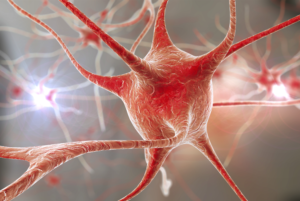
“We chose the hippocampus because it’s so important in learning, memory, and mood function,” Shetty said. “We’re interested in understanding aging in the brain, especially in the hippocampus, which seems particularly vulnerable to age-related changes.” The volume of this part of the brain decreases during the aging process, potentially related to a decline in neurogenesis (production of new neurons) and memory deficits.
Challenges in the Aged Hippocampus
The aged hippocampus exhibits signs of age-related degenerative changes, such as chronic low-grade inflammation and increased reactive oxygen species. Bharathi Hattiangady, assistant professor at the Texas A&M College of Medicine and co-first author of the study, was excited to discover that the aged hippocampus can accept grafted neural stem cells as well as the young hippocampus does, a discovery with significant implications for treating age-related neurodegenerative disorders.
Neural Stem Cell Grafting Process
In this new study, the team found that neural stem cells engrafted well onto the hippocampus in both young and older animal models. Not only did these implanted cells survive, but they also divided several times to create new cells. “They had at least three divisions after transplantation,” Shetty said. “The total yield of graft-derived neurons and glia was much higher than the number of implanted cells, in both the young and aged hippocampus.”
Creation of New Neural Stem Cell Niches
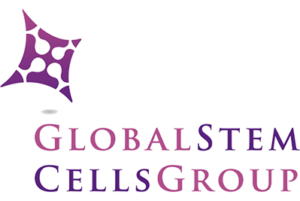
In both old and young brains, a small percentage of the grafted cells retained their stemness feature—an essential characteristic of a stem cell that distinguishes it from ordinary cells—and continuously produced new neurons. This process creates a new ‘niche’ of neural stem cells, which continue to produce new neurons at least three months after implantation.
Comparison to Previous Efforts
Past efforts to rejuvenate brains using fetal neurons were not as successful. Immature cells, such as neural stem cells, can tolerate the hypoxia (lack of oxygen) and trauma of the brain grafting procedure better than relatively mature neurons. The research team used a new technique of preparing the donor neural stem cells, leading to these promising results.
The Role of Brain Marrow
The researchers used donor cells from the sub-ventricular zone of the brain, an area called the “brain marrow,” analogous to bone marrow. This area holds a number of neural stem cells that persist throughout life, continuously producing new neurons that migrate to the olfactory system and respond to injury signals.
Potential of Induced Pluripotent Cells from Skin
Even a small stem cell sample can be expanded in culture, making the procedure minimally invasive. In the future, a single skin cell might suffice to create induced pluripotent stem cells, which can be pushed into neural stem cells. This eliminates the need to obtain cells from the brain, potentially revolutionizing the process.
Future Research Directions
Although the success of the grafted cells is promising, further research is needed to determine if the increased grey matter improves cognition. “Next, we want to test the impact of the implanted cells on behavior and determine if implanting neural stem cells can reverse age-related learning and memory deficits,” Shetty said. He is focused on rejuvenating the aged brain to promote successful aging, maintaining normal cognitive function, and the ability to make memories.
- Published in Blog


